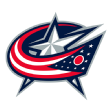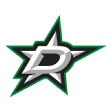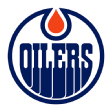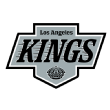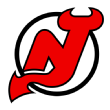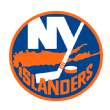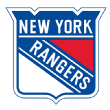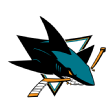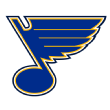Future Hall of Famers for all 31 NHL teams

It's revelation week for the Hockey Hall of Fame's Class of 2020, which means a fresh set of inductees and a vitriolic collection of debates over perceived snubs by the selection committee.
If only there were a formula that could determine Hall worthiness ...
Well, three years ago, we created one. It's a simple four-quadrant test that one can apply to prospective Hall of Fame candidates to see whether they have the stuff of legends, and here it is:
1. Individual production: This encompasses a player's statistical records, within the context of his era.
2. On-ice impact: What did that individual performance mean for the player's teams and teammates? "Winning" is sort of a nebulous concept, but there are ways to explore this impact -- postseason scoring, scoring rates in team wins, impact on teammates via with-or-without-you (WOWY) stats -- that can help quantify it.
3. Prestige: Could this player be considered among the top three in his position at any time during his career? This is where awards and accolades come in, as well as comparisons with his peers.
4. Cultural impact: The fame aspect of the equation, but also the most subjective one. Did this player revolutionize his position or cause others to emulate him? Was he considered a star? Was there something transcendent about this player?
We applied this test to all 31 NHL teams, looking at players (active and alumni), coaches and execs who are locks for the Hall, those whose candidacy can be debated and those who need a few more years to percolate before we know if they're Hall-worthy.
Something to keep in mind: Unlike baseball, these guys don't go in wearing the hat of a certain team on their plaque. We're putting active players with their current teams, and retired players on the teams with whom they're most associated. Don't get too bent out of shape about the team with whom a player is paired.
Let the debates begin!
All stats from Hockey Reference, Natural Stat Trick and Evolving Hockey.
Anaheim Ducks
Top candidate: Ryan Getzlaf, C
One of the top all-around centers of his era, with 965 points in 1,052 games. He had 17 points in 21 playoff games in the Ducks' 2007 Stanley Cup run, before he was the team's top-line center. Overall, he has 120 points in 125 playoff games. He won gold twice with Canada at the Olympics and was a part of their World Cup of Hockey win. Quadrants 1 and 2 are solid, and it could be argued he was a top-5 center in the NHL at the apex of his powers. But does he have that extra "something" to move him to the elite level where some of his peers reside?
Up for debate: Ryan Miller, G
Miller won the Vezina Trophy in 2010, the same year that he backstopped the U.S. men's Olympic team to an overtime loss to Canada, settling for silver. But that season made him a star. Overall, Miller has a record of 387-281-86 in 780 games. In some ways, he was Dominik Haseklite: making some pretty bad Buffalo teams look a lot better with his goaltending. But there are so many other goalies from his era with better numbers, even if Miller's impact was palpable.
Give him a few years: John Gibson, G
One bad season on a bad team doesn't derail what has been a strong start for Gibson, who has 139 wins in 279 starts and a .918 save percentage at 26.
Arizona Coyotes
Top candidate: Shane Doan, RW
Doan is a first-year candidate in 2020 who falls squarely into that "great player on some not very great teams" category from which the Hall of Fame plucks some entrants. Doan had 402 goals and 972 points in 1,540 games with the Winnipeg Jets (V1.0), Phoenix and Arizona Coyotes. During that span, he appeared in 55 playoff games. He never was in the running for a major award -- although he captured the Messier Leadership Award and the King Clancy, which are indicative of how respected Doan is in hockey circles. That's his best virtue, after a very good but never great career.
Up for debate: Phil Kessel, RW
One of the most prolific scorers of his era. Kessel has 861 points in 1,066 games, including 371 goals. His durability is exemplary: Kessel is up to 844 consecutive games played. Imagine how stronger his case might have been had Sidney Crosby not won the Conn Smythe that should have gone to Kessel in 2016?
Give him a few years: Taylor Hall, LW
A Hart Trophy win is a solid base on which to build a Hall case for Hall, as are 563 points in 627 games. Where he spends the next five to eight seasons will determine everything about his bid for immortality.
Boston Bruins
Top candidates: Patrice Bergeron, C; Zdeno Chara, D
Chara is a lock. He won one Norris Trophy, is a five-time finalist for the award, and was fourth since 1999 in points among defensemen (647) in the most games played (1,469), with a league-best plus/minus (+295). His 6-foot-9 frame makes him a mythic figure in hockey, too. Bergeron has three of the four quadrants solidified; the fourth, individual production, should be satisfied when Bergeron breaks 1,000 points in the next few seasons. His four Selke trophies, eight nominations and reputation as a prototypical two-way center for his generation cement him for the Hall.
Up for debate: Tuukka Rask, G; Tim Thomas, G
Rask has 291 wins in 536 games. For all goalies since 1999, he has the best save percentage (.922) and is tied for the best goals-against average (2.26) with Martin Brodeur -- another netminder who had to endure the "product of his team" label. With a Vezina and Jennings to his credit, the 32-year-old is making his case. That .927 playoff save percentage would look even more impressive with a Stanley Cup win of his own. Thomas had a five-season run of utter domination from 2007 to '12, including two Vezinas and a Conn Smythe in Boston's 2011 Stanley Cup win. His recent admission about post-concussion struggles, combined with his journeyman origin story, might outshine the controversy his political leanings caused during his playing days.
Give them a few years: Brad Marchand, LW; David Pastrnak, RW
Marchand's goal-scoring explosion in recent campaigns -- 198 goals since 2014, which is fifth best in the league -- makes him an intriguing potential candidate, but a lack of individual awards and a reputation that has taken a licking might prevent him from serious consideration. Pastrnak has had a tremendous start to his career, as his 115 goals since 2016 are behind only Alex Ovechkin and Auston Matthews.
Buffalo Sabres
Top candidate: Alexander Mogilny, RW
Mogilny is in his 11th year of eligibility, but as the induction of Vaclav Nedomansky showed last year, there has been a shift in the selection committee toward Russian and Eastern European players. Mogilny is a Triple Gold Club member with a 1.04 points per game average (40th). He was also the first Soviet defection to the NHL. He's a four-quadrant candidate, especially with that sterling points-per-game average. He even won a Lady Byng in 2003. Could this be the year?
Up for debate: Jack Eichel, C
The Sabres' star is the best candidate they've got at the moment, with 337 points in his first 354 games. At best, he might have Quadrant 2 filled, even at a career minus-60. But he hasn't been a finalist for any individual awards, nor has he led the league in any significant category. It's difficult to establish prestige without having a played a minute in the postseason.
Give them a few years: Rasmus Dahlin, D; Jeff Skinner, C
We're being a bit generous with Skinner, who has 258 goals in 720 career games. But he's only 28 and is one season removed from 40 goals. Dahlin has 84 points in 141 career games, and at 20 years old has already shown flashes of what made him the first overall pick in 2018. There's not a ton to love about the Sabres these days, but having Dahlin as a building block is one positive.
Calgary Flames
Top candidate: Jarome Iginla, RW
By the time you read this, he might already be in. He has the numbers, with 625 goals and 1,300 points, with two goal-scoring titles to his credit. He never won the Stanley Cup and was edged by Jose Theodore for the Hart Trophy in 2002 by a razor-thin margin. But he won two Olympic golds, won at worlds, won in world juniors, won at the 2004 World Cup of Hockey. Also, he's Jarome Iginla. Of course he's in.
Up for debate: Theo Fleury, RW
Fleury has some incredible numbers, with 455 goals and 1,088 points in 1,084 games. He won the Stanley Cup with Calgary in 1989 and a gold medal with Canada in 2002. From 1989 to '94, he was one of the best offensive players in the league. Quadrant 4 is locked down: Fleury is one of the most electrifying talents in recent NHL history, whizzing around the ice at a listed 5-foot-6. But a lack of individual honors -- the best he did was fifth for the Hart Trophy, twice -- hurts his case.
Give him a few years: Johnny Gaudreau, LW
Despite a downtick this season, Johnny Hockey is a 0.96 points-per-game player, with 445 points in 464 games through seven seasons in Calgary. Like Fleury, he has that fourth quadrant transcendent quality to him, and one could argue he has a case for Quadrant 3 as a top left wing in the West for a few seasons.
Carolina Hurricanes
Top candidate: Rod Brind'Amour, C
If Guy Carbonneau got in last season, how can they keep Rod The Bod out? The current head coach of the Hurricanes won the Selke twice, and Carbonneau won it three times. He crushes Carbonneau statistically, too: 1,184 points in 1,484 games to 663 points in 1,318 games for Carbonneau. He had 18 points during the Hurricanes' 2006 Stanley Cup run, too. This year is his seventh year of eligibility. Will it be his last year of waiting?
Up for debate: Pat Verbeek, RW
We're using our Hartford Whalers cheat code here. The original "Little Ball of Hate" scored 192 goals in 433 with the Whale, as part of a career that saw him net 522 goals in 1,424 games. He won a Stanley Cup with Dallas in 1999. His goal scoring puts him in some rare company filled with Hall of Famers, but he never got a sniff of a major award.
Give him a few years: Sebastian Aho, C
The Hurricanes have a few players worth keeping an eye on, including defensemen Dougie Hamilton and Jaccob Slavin, as well as forward Andrei Svechnikov. But four years into his NHL career, Aho has 263 points in 310 games, including 38 goals this season.
Chicago Blackhawks
Top candidates: Marian Hossa, RW; Patrick Kane, RW; Duncan Keith, D; Jonathan Toews, C
Four pillars of the Blackhawks' Stanley Cup runs should all enter the Hall sooner (in the case of Hossa) or later. Hossa, a first-year candidate, has the regular season (525 career goals and 1,134 career points), playoff (89 points in 110 playoff games) and international (28 points in 19 Olympic games) numbers. He went to the Stanley Cup Final five times, and was considered one of the best two-way wingers of his era. Kane is on his way to 500 goals, with 389 at 31. Keith was a machine: 1,138 career games, two Norris Trophies and a Conn Smythe. Toews also has a Conn Smythe. While his career numbers are a tick down from the others, the amount of prestige and impact he has had is catnip to Hall voters -- especially when it comes to Canadian exceptionalism in international play. Not a total lock, but we'll assume he's in.
Up for debate: Jeremy Roenick, C; Doug Wilson, D
Wilson has been eligible since 1996. He won the Norris Trophy in 1982 with Chicago and was a top-four finisher for the award three other times. His offensive numbers rank among the greatest ever among defensemen: an 0.81 points-per-game average that ranks eighth among defensemen with at least 657 games played. He was a model of consistency for about 11 seasons. But there were defensemen in his era --Ray Bourque, Paul Coffey and Rod Langway among them -- who were a shade better. As for Roenick, you know the drill: The "fame" thing is undeniable. His 0.892 points-per-game average puts him right with Hall of Famer Joe Nieuwendyk. But no awards or championships.
Give him a few years: Stan Bowman, GM
Bowman built a dynasty in the cap era, where he had to jettison the guts of his first Cup-winning team and rebuild it into one that won twice more. If he's able to build another Cup contender or winner -- in Chicago or elsewhere -- could there be a Hall of Fame case?
Colorado Avalanche
Top candidate: Nathan MacKinnon, C
At this point you'd have to say that he's on the path. MacKinnon just completed his third straight 90-point season, leading the league in shots on goal in the past two seasons. He won the Calder, and should be a Hart Trophy finalist this season for the second time. And he's only 24.
Up for debate: Adam Foote, D
The Hockey Hall of Fame rarely makes room for specialized players. Clark Gillies as the resident enforcer for the Islanders is one of the few. Foote never scored higher than 31 points, never was considered for a Norris nor an All-Star team. But he was an Olympic selection twice, and won gold in 2002. He was also the defensive backbone of two Avalanche Cup teams. Does a defensive defenseman warrant immortality, and if so, does Foote earn it?
Give him a few years: Mikko Rantanen, RW
The Avalanche winger already has been a point-per-game player for the past three seasons, and has 250 points in his first 281 games. If he continues to be paired with MacKinnon, he'll be on a solid path, too.
Columbus Blue Jackets
Top candidate: Rick Nash, LW
Nash was forced into retirement due in part to a series of concussions, and was only 33 in his final season. He had 805 points in 1,060 games, including an outstanding 437 goals -- the same number Pavel Bure scored, actually. Nash put up incredible numbers on some really terrible Blue Jackets teams.
Up for debate: John Tortorella, coach
Torts has 655 wins in 1,327 career games, including a Stanley Cup championship with the Tampa Bay Lightning in 2004. In other words, he's only 45 wins away from 700 in his career, a rarified benchmark only eight other coaches in NHL history have reached, although six of them were Tortorella's contemporaries. Thanks, revamped overtime rules!
Give him a few years: Seth Jones, D
He's 25 years old and really finding his stride as one of the better all-around defensemen in the NHL. There's a Norris Trophy in his future at some point, having finished fourth for the award in 2018.
Dallas Stars
Top candidate: Jere Lehtinen, RW
Lehtinen won the Selke three times as a winger and was a finalist a fourth time. His offensive totals weren't shabby either, with 514 points in 875 career games with the Stars. He won the Stanley Cup and played on five Olympic teams for Finland. There's some debate on whether Guy Carbonneau swung the door open for other defensive aces with his induction. If so, Lehtinen is top of the list.
Up for debate: Joe Pavelski, C; Corey Perry, RW
Two first-year Stars with similar numbers: Pavelski has 369 goals in 1,030 games, and Perry has 377 goals in 1,045 games. The big difference, of course, is that Perry has a Stanley Cup title, double Olympic gold and a Hart Trophy on his ledger.
Give him a few years: Miro Heiskanen, D
At 20 years old, the Finn is already developing into one of the best defensemen of his era. But, it's only Year 2.
Detroit Red Wings
Top candidate: Pavel Datsyuk, C
We're higher on Datsyuk than some. His candidacy is a lot like Bergeron's. He had three consecutive Selke Trophy wins and was a six-time finalist as a prototypical defensive forward, and has two Stanley Cup rings. He has a 0.98 points-per-game average but fell short of 1,000 points for his career before shuffling off to the KHL. Does his offensive explosiveness make up for that lack of flashy stats?
Up for debate: Chris Osgood, G; Henrik Zetterberg, C
Zetterberg has two quadrants locked down: his contributions to the Red Wings, with whom he played 1,082 games and had 960 points, and capturing the Conn Smythe in 2008. But he never got the respect for his defensive game that he deserved during his career, playing in Steve Yzerman's and then Datsyuk's Selke shadow. Osgood has a complicated case. He has 401 career wins and an impressive 74 playoff wins. His career playoff goals-against average is 2.09, which is ahead of Jacques Plante, Ed Belfour and Patrick Roy. Ultimately, Osgood is probably viewed as a product of his team, but his numbers put him in the conversation.
Give him a few years: Dylan Larkin, C
That 32-goal season in 2018-19 showed some considerable offensive upside. He turns 24 in July, and hopefully gets surrounded by players who can help him fulfill that promise in Detroit.
Edmonton Oilers
Top candidate: Connor McDavid, C
When we visited this topic in 2017, listing McDavid as having satisfied Quadrants 3 and 4 was termed "a huge leap of faith." Let's take an even bigger leap: With 469 points in 351 games, the third-best points-per-game average in Oilers history (1.34) and two scoring titles, McDavid has the Quadrant 1 requirements met. With a Hart Trophy and a Lindsay, McDavid is well on his way to meeting Quadrant 2, even if the Oilers have given him only 13 games of postseason spotlight. A great argument for the back of the pub: If McDavid had to retire tomorrow, does he get in the Hall of Fame for these brilliant first four seasons?
Up for debate: Kevin Lowe, D
He was the backbone of six Stanley Cup championship teams, including five with the dynastic Oilers, who already have produced six Hall of Famers. Wayne Gretzky wants him in the Hall, and there's a case for him. But has the Hall honored enough players from that Oilers dynasty where Lowe is the cutoff?
Give him a few years: Leon Draisaitl, C
Now that he has shown he can be his own star at even strength -- while partnering with McDavid on the power play -- Draisaitl is writing his own legend, with back-to-back seasons of 105 or more points and one year removed from 50 goals. Perhaps after much speculation on whether he could fill the role, the Oilers have found the Messier to McDavid's Gretzky.
Florida Panthers
Top candidate: Joel Quenneville, coach
Coach Q has 925 career wins, second only to Scotty Bowman in the history of the NHL. He led the Chicago Blackhawks to a modern dynasty of three Stanley Cups in six seasons, and won the Jack Adams in 2000 with the St. Louis Blues. A lock for the Hall.
Up for debate: Roberto Luongo, G
He's not eligible until 2022. Considering the Hall of Fame's inconsistent history with goaltending candidates -- as in, they don't enshrine many -- that might give one pause on Luongo. Then you remember this is a goalie who is third in wins (489), second in games played (1,044), second in shots against (30,924) and saves (28,409) while being ninth in save percentage (.919). Oh, and literally everybody loves him. It's hard to call a goalie a lock, especially one who didn't win a Vezina, but the NHL's official site has already started debating whether he'll make it on the first ballot.
Give him a few years: Sergei Bobrovsky, G
Bobrovsky currently looks strong in three of the four quadrants, with 278 wins in 507 games and a career .917 save percentage during what has been an increasingly offensive era. But it's those two Vezina wins that really propel him into the conversation. Since 2000, only Brodeur and Thomas had won the award twice.
Los Angeles Kings
Top candidates: Drew Doughty, D; Anze Kopitar, C
These are two strong Hall of Fame cases, despite the recent change in fortunes for their team. Kopitar is arguably a four-quadrant player: 950 points in 1,073 games, to go along with his two Selke wins. His 46 points in 46 playoff games during their two Stanley Cup wins fills Quadrant 2. Doughty has Quadrants 2, 3 and 4 fulfilled but doesn't have the same offensive output as some of his peers. His numbers taking a tumble at age 30 is a cause for concern, but then again he has played on a couple of terrible teams. But let's face it: There aren't many Canadian-born players who have been as celebrated as Doughty for the past decade. No reason to think that won't carry over to his Hall candidacy, as long as his numbers don't continue to crater.
Up for debate: Jonathan Quick, G
Quick had a run of dominance. He was probably the best goalie in the NHL in 2011-12, with a .929 save percentage and around 28 goals saved above average. He lost the Vezina to Henrik Lundqvistbut won the Conn Smythe and the Cup. His overall run from 2011 to '18 put him on an elite level -- even if the players and system in front of him were given equal credit. He's 34, and his numbers are trailing off.
Give him a few years: The field
The Kings have the first- or second-best prospect pool in the NHL, and are a player in the draft lottery this summer. We'll just wager one of them works out, big time.
Minnesota Wild
Top candidate: Ryan Suter, D
The Wild are unfortunately the poster children for the "Hall of Very Good or Just OK." Suter is a good example of that: a steady, durable, unassuming defenseman who put up good offensive numbers (588 points in 1,142 games) but was only a Norris finalist once.
Up for debate: Marian Gaborik, RW
Gaborik has some prestige as an offensive dynamo during his peak, and has 407 career goals in 1,035 games. His 14 goals for the Kings during their 2014 Stanley Cup run led the postseason, and he was strong in international play for Slovakia. Not the strongest case, but a case.
Give him a few years: Eric Staal, C
His late-career resurgence with the Wild put him back in the conversation, as he's up to 436 career goals and 1,021 career points, which are both eighth among active players. His 28 points in 25 games in the Hurricanes' Stanley Cup run was one Cam Ward away from the Conn Smythe, too. It'll be interesting to see where these numbers end up.
Montreal Canadiens
Top candidate: Carey Price, G
Price had that one incredible season in which he won the Hart and Vezina in 2014-15, a rare feat for a goaltender. He has the respect of his peers and some solid numbers: fifth in wins (301) and third in save percentage (.918) in the past decade. The cap on goalies in the Hall hurts his chances, but back-stopping Canada to Olympic gold in 2014 and the World Cup of Hockey title in 2016 certainly bolsters his case.
Up for debate: Shea Weber, D
Weber never won the Norris -- thanks, Nicklas Lidstrom and Erik Karlsson!-- but has 570 points in 990 games and was absolutely considered one of the top defensemen of his era. He has two Olympic gold medals with Team Canada and another in world juniors. Considering the Hall of Fame selection committee has shown an ability to reach deep into the defenseman pool for candidates, Weber might actually be ahead of his teammate Price on this list.
Give him a few years: Claude Julien, coach
One assumes Julien will be behind the Canadiens bench as they grow into a contender, which means that 700 wins will be in sight. He currently has 658 victories, plus a Stanley Cup championship and two Eastern Conference titles with the Bruins.
Nashville Predators
Top candidate: David Poile, GM
The winningest general manager in NHL history -- in terms of regular-season success -- is not in the Hockey Hall of Fame yet. One assumes that'll change one day, especially with his father, Bud Poile, already in there. The selection committee loves a legacy.
Up for debate: Pekka Rinne, G
A four-time Vezina finalist who won the award in 2018, Rinne won 359 of 659 games and has a career .917 save percentage. One of the top goaltenders of his era, but with Lundqvist and Luongo probably ahead of him in line, does Rinne make the cut one day?
Give him a few years: Roman Josi, D
Josi is starting to finally get the recognition for his solid all-around game, which will result in his first Norris nomination and potentially a victory this season. He's 30, so he has a ways to go to build on 413 points in 632 career games.
New Jersey Devils
Top candidate: Patrik Elias, LW
One of the leading "Hall of Very Good" test cases. Elias had 1,025 points in 1,240 career games, including a 40-goal, 96-point 2000-01 season in which he was an NHL best plus-45. He finished sixth for the Hart that season, and therein lies the problem: Elias never won an NHL award, and that season was his only postseason All-Star team selection. Incredible numbers, but his 14-year career with the Devils left him short in Quadrants 3 and 4.
Up for debate: P.K. Subban, D
Well, Quadrant 4 is a cinch, as few players in Subban's run in the NHL can claim his level of ubiquitous fame. His three Norris nominations -- and one win -- from 2012 to '18 establishes him as a top-three player at his position. With 426 points in 713 games, Subban was an offensively productive player. His numbers have fallen off considerably in the past two seasons, but he's only 30.
Give him a few years: Jack Hughes, C
Look, Vincent Lecavalier had a bad rookie season too and went on to score 421 goals in the NHL. Granted, he's probably not a Hall of Famer, but you get the point: Don't judge a first overall pick by his inaugural season.
New York Islanders
Top candidate: Barry Trotz, coach
Trotz finished the 2019-20 season with 845 wins, only four behind Ken Hitchcock for third all time in NHL history. He was already one of the most respected coaches in the NHL before he won 205 out of 328 games with the Washington Capitals, including the Stanley Cup. He's still working his magic on the Island. It's hard to imagine he won't be in the Hall one day.
Up for debate: Zigmund Palffy, RW
Alex Mogilny is, in our estimation, a Hall of Famer. You know who else had a 1.042 points per game average for his career? That would be Palffy, with 713 points in 684 games. That included 329 goals. His run from 1995 to '98 produced 136 goals. No NHL awards or championships, though.
Give him a few years: Mathew Barzal, C
He has 207 points in his first 234 NHL games, and is without question one of the league's most dynamic playmakers. No truth to the rumor that we're including him here to up his restricted free agent asking price.
New York Rangers
Top candidate: Henrik Lundqvist, G
A four-quadrant candidate. A five-time Vezina finalist, with one win, who has 459 career victories and a .918 career save percentage. He was in double digits in goals saved above average in eight of his first nine NHL seasons. He backstopped the Swedes to Olympic gold and silver, even if the Rangers were unable to win a Stanley Cup for him. At least not yet.
Up for debate: Mike Richter, G
Can two monumental events propel a player into the Hall of Fame? Richter backstopped the Rangers to their first Stanley Cup in 54 years in 1994. He then stood on his head to propel the U.S. to its World Cup of Hockey win over Canada in 1996, capturing tournament MVP. He also had a solid NHL career with a 301-258-73 record. Canadian Paul Henderson had one great hockey moment and gets constantly mentioned for the Hall. Richter had two and doesn't. Wonder why that is ...
Give him a few years: Artemi Panarin, LW
He has 415 points in his first 391 games, for a career 1.06 points-per-game average. He won the Calder over Connor McDavid.Does he end up winning his first Hart Trophy over Leon Draisaitl this summer?
Ottawa Senators
Top candidate: Daniel Alfredsson, RW
One of the NHL's best ambassadors during his career, the former Senators captain had 444 goals (No. 63 all time) and 1,157 points (No. 54 all time) during his 17-season run with Ottawa (and that other season in Detroit). He won the Calder Trophy, although no other individual hardware, and won Olympic gold and silver for Sweden. Others might have him in the Hall of Very Good, but he has a Hall of Fame case.
Up for debate: Dany Heatley, LW
The Hall of Fame has shown the ability to honor players for torrid stretches of their careers, even if their overall career stats don't speak to immortality. Heatley's 219 goals from 2005 to '10 were third to Alex Ovechkin and Ilya Kovalchuk in that span. He doesn't really have a complete case for a candidacy, but that run was incredible.
Give him a few years: Brady Tkachuk, LW
Scoring 89 points in his first 142 games is a solid start for the young forward. Although we'll note that the Hall hasn't been kind to Tkachuks quite yet.
Philadelphia Flyers
Top candidate: Tim Kerr, RW
Dave Andreychuk's induction made the word safe for guys who score "garbage" goals, which is the slanderous label given to players who sacrifice their well-being to camp in the slot. Kerr was one of the best at it, and few players in NHL history can match his run from 1983 to '89: four straight 50-goal seasons and 272 goals, a run too easily dismissed by some as just a product of the 1980s. The puck still has to go in the net. Alas, not a sniff of a major award for Kerr, whose career ended at 33 with 370 goals.
Up for debate: Claude Giroux, C
He has 815 points in 889 games during his 13 seasons with the Flyers. He finished top-four for the Hart three times, making it as a finalist once. He doesn't meet the requirements of quadrants 2 and 4, although former Flyers coach Peter "he's the best player in the world" Laviolette probably would argue he fulfills quadrant 3.
Give him a few years: Carter Hart, G
He has won 40 of his first 70 NHL games, and 2019-20 was a breakout season for him. He would be a lock for the Hall if the Flyers played every game at home, where he's 31-12-3 with a .928 save percentage for his career.
Pittsburgh Penguins
Top candidates: Sidney Crosby, C; Evgeni Malkin, C; Patrick Marleau, C; Jaromir Jagr, RW
Jagr is second all time in career points (1,921), third in goals (766) and third in games played (1,733). Crosby is rapidly climbing both lists and is sixth in NHL history in points-per-game average (1.28), while being considered the best player in the world during a career that has seen him collect championships and awards like they're hockey cards. Malkin has the stats, the team impact and the prestige. The only quadrant that's not a slam dunk is the fourth one, which is one reason the NHL (incorrectly) left him off its Top 100 of all time list. As for Marleau, who is now a Penguin if you'll recall, he has 562 career goals. Despite questions about his impact and postseason performance, no one has scored more and not gotten into the Hall, active players notwithstanding.
Up for debate: Tom Barrasso, G
What an interesting career for the American goaltender: 369 wins in 777 games, winning the Calder and the Vezina in his rookie season with Buffalo. He'd go on to be a five-time finalist for the award. He's best known for being the Grant Fuhr for the Penguins' back-to-back Cups in 1991 and 1992; overshadowed by the team's offensive stars, but rock solid when he needed to be in the postseason, especially in that first run.
Give him a few years: Kris Letang, D
He's 33, which means his best shots at the Norris Trophy are probably behind him. But if Letang can win one, it could change the conversation around a player who does have some strong individual numbers (537 points in 808 games) in his favor.
San Jose Sharks
Top candidates: Erik Karlsson, D; Joe Thornton, C
Thornton is a first-ballot Hall of Famer. He won the Hart and the Art Ross in 2005-06, and established himself as one of the best playmakers in NHL history during his 22-year career, as he's seventh all time in assists (1,089). Karlsson's Hall of Fame case is his incredible run from 2011 to '17, which included two Norris Trophy wins, and for being one of the best offensive defensemen in NHL history: His 0.82 points-per-game average is tied for eighth in NHL history for defensemen, with Hall of Famer Phil Housley. Injuries have impacted him lately, but he's still producing when healthy. Internationally, Thornton has Olympic gold, and Karlsson won silver.
Up for debate: Evgeni Nabokov, G
One of the more underappreciated goalies in the past 20 years, Nabokov had 339 wins in 697 games, finishing in the top five of the Vezina voting five times (although never winning). He was never the best goalie in the NHL but was certainly in the top five for a good chunk of his career. But that's not exactly a solid Hall of Fame case, and neither is losing your gig to Vesa Toskala.
Give him a few years: Brent Burns, D
Burns is creeping up the all-time defensive scoring leaders board, at 694 points in 1,113 games. That Norris Trophy win in 2016-17 bolsters his case, as does the fact that he has been a shot-generating machine for the better part of seven seasons. But the knock on Burns being a one-dimensional player -- which carries over from his time at forward in Minnesota -- is a drag on him. Burns is 35 and had a tough 2019-20 but could make things interesting with a few more productive offensive seasons.
St. Louis Blues
Top candidate: Keith Tkachuk, LW
His 538 career goals -- including back-to-back 50-goal seasons in the thick of the dead puck era -- are an undeniably impressive number, as are 1,065 career points in 1,201 career games. But unlike his former teammate Jeremy Roenick, he doesn't have that fourth quadrant filled. A great player, just not a transcendent one.
Up for debate: Ryan O'Reilly, C
He finally broke through with a Selke win and a Conn Smythe for the Cup-winning Blues last season, in a career that has seen him score 560 points in 804 games. If he goes on a Bergeron-esque run of defensive player awards, there's a lane for him to the Hall. Not a wide one, though, at this point.
Give him a few years: Vladimir Tarasenko, RW
Being limited to 10 games this season didn't help, but 214 goals in 507 games for the 28-year-old put him on track to score a considerable amount more of them by the end of his playing days.
Tampa Bay Lightning
Top candidate: Steven Stamkos, C
Stamkos has 422 goals in 803 NHL games, and he won the Rocket Richard Trophy twice. Injuries are a concern, but that might just end up making Stamkos a contender in the tradition of a Pavel Bure or Paul Kariya, making the most in a limited run: At 0.53, he has the 17th-best goals-per-game mark in NHL history.
Up for debate: Victor Hedman, D
Hedman won the Norris in 2018 and was a finalist in three straight seasons. Like Stamkos, he's a pillar of the Lightning's foundation. He's third in points (404) for defensemen since his breakout season in 2012-13. There have been a lot of great defensemen in the past decade, and Hedman is near the top of the list.
Give them a few years: Nikita Kucherov, RW; Andrei Vasilevskiy, G
Kucherov is rocketing up the goal-scoring ranks, with 221 of them in his first 515 games played. His 128-point, MVP season in 2018-19 cemented him as one of his era's most dominant offensive talents. Vasilevskiy led the league in wins for the past three seasons, and captured his first Vezina last season. At 25, he is without question a goalie to watch over the next several years, considering how good the team in front of him is.
Toronto Maple Leafs
Top candidate: John Tavares, C
He's building a strong case with 345 goals and 769 points in only 814 career games. He was a two-time Hart finalist for the Islanders and won Olympic, world junior and World Cup gold with Team Canada. We'd say he has Quadrants 1 and 3 locked down, and could easily nail down the other two if he ends up leading the Leafs to a Stanley Cup. Heck, they might waive the waiting period for the Hall if he pulled off that miracle.
Up for debate: Curtis Joseph, G
We're going to cheat a little on this one, because CuJo played more games (280) with the Blues than with the Leafs (270), even though he had one more win (138) in Toronto. We'd say his fame reached its apex with the Leafs, during a run of three straight 30-win seasons. Joseph has the stats case for the Hall of Fame: seventh in career wins (454), sixth in games played (943). What he lacks is the impact. Joseph never won a Vezina Trophy (despite being in the top four five times) nor a Stanley Cup. To date, Ed Giacomin is the only Hall of Fame goalie not to have won a Cup.
Give him a few years: Auston Matthews, C
With 285 points in his first 282 games, including a 47-goal season in 2019-20 at 22, we'd say that Matthews is very much on pace to end up with a Hall-worthy career at this juncture. And like with Tavares, if that career includes him leading the Leafs to the Stanley Cup and, like, winning the Conn Smythe? He might get his own wing at the Hall.
Vancouver Canucks
Top candidates: Daniel Sedin, RW; Henrik Sedin, C
The twins are first-year eligible in 2021. Logic would dictate that the Hall of Fame would induct both in the same class; alas, the Sedins have said they don't want to be on the same plaque, even if they totally should be. Of course, the Hall could go full chaos mode and induct Henrik -- who has a Hart Trophy win and more career points (1,070) -- while leaving Daniel to wait. Which would be cruel but hilarious.
Up for debate: Markus Naslund, LW
For a three-season stretch, Naslund was the best left wing in the NHL: scoring over 40 goals annually from 2000 to '03, culminating in a 104-point season that saw him win NHLPA Player of the Year honors and finish second to Peter Forsberg for the Hart. His overall numbers -- 869 points in 1,117 games -- fall short of the Hall standard, but he has Quadrant 3 locked down.
Give him a few years: Elias Pettersson, C
We're two seasons into this guy's NHL career and he has 132 points in his first 139 games. Last season, he won the Calder. This season, he generated MVP buzz. The sky's the limit for Pettersson.
Vegas Golden Knights
Top candidate: Marc-Andre Fleury, G
Flower's 466 wins put him fifth all time in the NHL. His career numbers (.913 save percentage, 2.57 goals-against average) aren't exactly immortal level. He has three Stanley Cup rings, although he was the clear-cut starter only for the first one. But Fleury is also a beloved figure off the ice, and there's no denying that his MVP-level performance in the Golden Knights' inaugural season powered one of the most unpredictable conference champions in NHL history.
Up for debate: Max Pacioretty, LW
The scoring winger had a four-season run in Montreal, where he tallied 141 goals. He's at 280 goals for his career, after a resurgent 32-goal season in Vegas. He turns 32 in November.
Give him a few years: Mark Stone, RW
The rest of the hockey world has finally caught up to the analytics community in understanding that Stone is awesome. He broke 20 goals for the seventh straight season and continues to defend on an elite level. He has 385 points, including 149 goals, in 449 career games, and at 28, he's entering his prime production years.
Washington Capitals
Top candidate: Alex Ovechkin, LW
A first-ballot lock already, with 706 goals and 1,278 points to go with a case of trophies: three Harts, three Lindsays, a Calder, a Conn Smythe, an Art Ross and nine goal-scoring titles. One of the greatest players of all time, with a shot at catching The Great One in goals.
Up for debate: Peter Bondra, RW; Sergei Gonchar, D
Ultimately, Bondra's inability to secure an NHL award or a championship drags down his individual accomplishments, but 503 goals in 1,081 games -- including four seasons over the 45-goal mark during the dead puck era -- are notable. Gonchar played 1,301 games and amassed 811 points. He won the Stanley Cup with Pittsburgh in 2009. A great defenseman who finished in the top five for the Norris Trophy four times ... but maybe not one of the greatest.
Give them a few years: Nicklas Backstrom, C; Ilya Kovalchuk, LW
At 927 points, Backstrom is closing in on the 1,000-point mark quickly. Another Stanley Cup win for the Capitals could cement his candidacy, but that "fame" component is missing. Perhaps Backstrom ends up becoming the next Sergei Zubov: great numbers, a part of winning teams but underappreciated in his time. As for Kovalchuk, he has 443 goals in 926 games, ranking him fifth among active players. One of the most dominant offensive players of his era, but his KHL sabbatical has left him short of that magic number of 500 goals. Does he have enough left to get there?
Winnipeg Jets
Top candidate: Paul Maurice, coach
Don't look now, but Maurice is seventh all time in coaching wins, with 732 in 1,600 career games. But one Eastern Conference title with Carolina and zero Stanley Cups is a bit of an issue.
Up for debate: Blake Wheeler, RW
Wheeler has always had sneaky great numbers: The 33-year-old is up to 761 career points and 264 goals in 931 games. It's a candidacy with room to grow, but some kind of hardware -- individual or otherwise -- is a necessity.
Give him a few years: Mark Scheifele, C
The 27-year-old has 444 points in his first 519 career games, and his consistency speaks to the kind of career that'll end with some gaudy totals. But it's the impact on which we're left waiting at this point.
Related Topics
- SPORTS
- ESPN
- CHICAGO BLACKHAWKS
- EDMONTON OILERS
- NEW JERSEY-DEVILS
- ARIZONA COYOTES
- PHILADELPHIA FLYERS
- LOS ANGELES-KINGS
- MINNESOTA WILD
- TORONTO MAPLE-LEAFS
- VEGAS GOLDEN-KNIGHTS
- WASHINGTON CAPITALS
- PITTSBURGH PENGUINS
- NASHVILLE PREDATORS
- CAROLINA HURRICANES
- WINNIPEG JETS
- ANAHEIM DUCKS
- ST LOUIS-BLUES
- NEW YORK-RANGERS
- COLORADO AVALANCHE
- BUFFALO SABRES
- OTTAWA SENATORS
- COLUMBUS BLUE-JACKETS
- SAN JOSE-SHARKS
- LIST
- FLORIDA PANTHERS
- DETROIT RED-WINGS
- NEW YORK-ISLANDERS
- VANCOUVER CANUCKS
- NHL
- DAILY
- TAMPA BAY-LIGHTNING
- BOSTON BRUINS
- DALLAS STARS
- HALL OF-FAME
- MONTREAL CANADIENS
- CALGARY FLAMES











